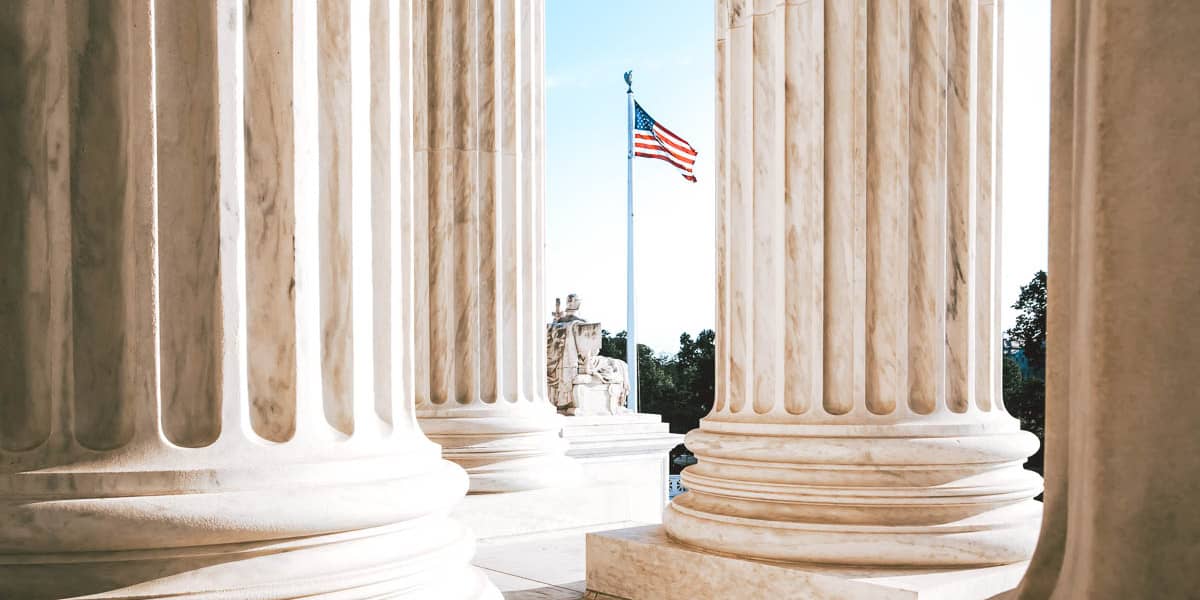Court Expenses: Does Your State Follow the American Rule?

- What is the American Rule?
- What is the reason for it?
- What is the English Rule?
- Are there exceptions to the American Rule?
- Which states follow the American Rule?
- Does a judge have to abide by the American Rule?
- References
The American Rule is the practice of each party in a court case paying their own fees and expenses. The English Rule, on the other hand, is the practice of the losing party paying the fees and expenses of the winning party.
What is the American Rule?
In the U.S. justice system, the American Rule is the principle that each party to a legal matter is responsible for their own attorney's fees and expenses. They pay these fees regardless of which party wins the case.
In other words, the application of the American Rule is generally that even the winning side in a legal dispute must bear its own expenses.
This principle is deeply ingrained in the legal system in the United States. Deviations from the rule typically require explicit statutory authorization or contractual agreements between the parties.
What is the reason for it?
The reasoning behind the American Rule is to promote access to justice. The hope is that people are not deterred from pursuing legal claims because of prohibitive legal costs.
There are exceptions to the American Rule, such as statutory provisions that allow winning parties to recover attorney's fees in specific types of cases. But the default position in the U.S. legal system is that parties are responsible for their own litigation costs.
An example of the American Rule comes from California, where the state’s Code of Civil Procedure requires both the winning and the losing parties of a lawsuit to pay their own legal fees unless there is an agreement or a statute that says otherwise.
Criticism of the American Rule
Critics of the American Rule say it encourages frivolous lawsuits. The argument is that if people were responsible for the other party’s legal fees, they would be less likely to file flippant lawsuits.
What is the English Rule?
The English Rule (also known as the loser pays rule) is a principle under which the prevailing party is typically awarded attorney fees and legal costs after they win. This means that the unsuccessful party bears the financial burden of not only their own legal expenses but also those incurred by the winning party.
After an English court case concludes, the court assesses the costs both parties have incurred. Unless exceptions are present, the losing party is ordered to pay the reasonable and proportionate legal costs of the winning party.
The English Rule is meant to deter frivolous litigation because bad-faith litigants know that they may be responsible for the opposing party's legal costs if they lose. Therefore, litigants are encouraged to carefully consider their likelihood of victory before they pursue legal action. Additionally, shifting the financial burden to the losing party theoretically prevents wealthier parties from having an unfair advantage in litigation.
A criticism of the English Rule is that it may deter individuals with valid claims from pursuing legal action because of the potential financial risks associated with an unsuccessful outcome.
The English rule is followed by nearly every Western democracy except for the United States.
Exceptions to the English Rule
As with the American Rule, there are exceptions and limits to the implementation of the English Rule. One is that the courts may consider factors like the conduct of the parties during litigation and may thus reduce the amount of costs to be paid by the losing party.
Similarly, contractual agreements may provide exceptions to the rule. Parties can include provisions in their contracts that specify how attorney’s fees will be handled in the event of a dispute.
Are there exceptions to the American Rule?
There are a number of exceptions to the American Rule, depending on the state and the type of legal case.
For example, if a judge determines that a losing party has brought a frivolous lawsuit, dragging out clearly lost cases in the appeals process or generally being unprofessional in their conduct and manner, the judge could direct the losing party to pay the expenses of the winning party.
Furthermore, different states have their own statutes that allow for awarding attorney’s fees in certain classifications of cases, such as consumer protection, family law, and environmental law.
On a federal level, there are also exceptions to the American Rule. For example, if there is a contract between the parties outlining that one side must pay the legal expenses of the other side in a disagreement, the judge would not uphold the American Rule.
If a case is dismissed, there is some variation in whether reimbursement of legal fees would be appropriate. When both parties attempt to dismiss a case with prejudice (where the plaintiff cannot refile the same claim again in that court), one of the parties can still attempt to recoup attorney’s fees. But attorney’s fees are not due if a single party willingly dismisses a complaint with prejudice.
Examples of exceptions to the American Rule
Here are some specific examples of how the exceptions to the American Rule can vary depending on the state and the type of legal case:
California
In California, the private attorney general doctrine allows for the award of attorney's fees to prevailing plaintiffs in cases that benefit the public interest. This exception has been applied in cases involving environmental protection, consumer protection, and civil rights.
Texas
In Texas, the offer of judgment rule allows a party to recover attorney's fees, but only if they reject a settlement offer that is later matched or exceeded by the court's judgment. This exception to the American Rule is designed to encourage parties to settle cases early and avoid unnecessary litigation.
New York
In New York, the frivolous lawsuit rule allows courts to award attorney's fees to parties who have been sued without merit. This exception to the American Rule is designed to deter frivolous lawsuits and protect defendants from unnecessary expense.
Which states follow the American Rule?
The American Rule is the default regulation in the United States, but there are variations and exceptions across different states. In addition to California and New York mentioned above, there are other states that have their own takes and exceptions to the rule, usually if the case poses a question of public interest. Such states include Massachusetts, Maine, Minnesota, and Oregon.
On the other hand, courts in the District of Columbia allow for a wider range of cases to have attorney fee shifting, while Hawaii grants attorney fee shifting in family law. If a court finds a breach of contract in Texas, this will constitute a statutory exception to allow the recovery of attorney fees.
Does a judge have to abide by the American Rule?
If both parties in a case contractually agree that the American Rule won't apply to them, and one party may instead be responsible for the attorney's fees of the other in certain circumstances, a judge would typically enforce the terms of that agreement. Also known as a fee-shifting provision, this is an example of a situation where a judge would not have to abide by the American Rule.
A judge is not bound by the American Rule if they are bound to uphold valid contractual agreements, which take precedence over the American Rule. Any legally binding arrangement between the parties regarding attorney’s fees would allow the judge to bypass the American Rule.
However, judges still retain certain discretionary powers, even with a fee-shifting provision. If the judge feels that there is potential unfairness or ambiguity in the contractual fee-shifting positions, they can exercise their authority to award attorney’s fees and legal costs to the winning party.
Similarly, the judge has the right to assess the reasonableness of requested attorney's fees. In other cases, judges may consider equitable factors, such as bad faith or misconduct. They may decide to award fees differently regardless of any pre-existing contractual provision.
References
The English Versus the American Rule on Attorney Fees: An Empirical Study of Public Company Contracts. (2013). Cornell Law Review.Fee-shifting. American Bar Association.
California Supreme Court Adds To Line Of Cases Narrowly Applying The Right To Recover Attorneys’ Fees Under Civil Code Section 1717. (2017). JD Supra.
The English vs. The American Rule on Attorneys Fees: An Empirical Study of Attorney Fee Clauses in Publicly-Held Companies’ Contracts. (2010). New York University, Law & Economics Research Paper
Bad Faith Fee-Shifting in Federal Courts: What Conduct Qualifies? (2010). St. John’s Law Review.
The American "Rule": Assuring the Lion His Share. (2011). University of Baltimore Law.
Attorney's Fees Civil Resource Manual. U.S. Department of Justice.



